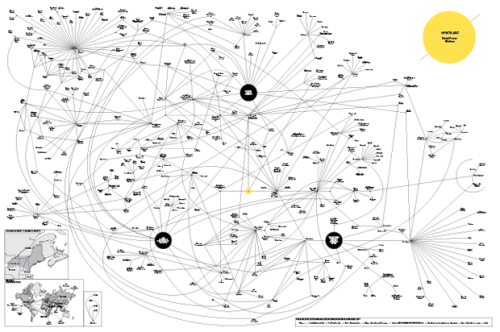I read Infinite Jest by David Foster Wallace from June 1st-August 8th this summer, with just a 3 day break to read My Name is Asher Lev and a chapter each morning on the porch of The Summer Book while I was in Kentucky. I reread Anne of Avonlea right after to let my brain recover/not commit to anything super literary while trying to unpack this brick of a book (that I am thankful to never have to carry in my purse ever again). All that to say, my summer reading looked very different from my usual devouring of books. It was as if I were in a committed dating relationship with Infinite Jest. I was talking with a colleague before school ended whose boyfriend had read the book and when he was half way through said: "Oh, I get it. The infinite jest is that I am still reading this book." There were many times I felt the same way.
The main conclusion that I came to after finishing its 981 pages of tiny type narrative and 96 pages of even smaller type footnotes is that it is the kind of book that needs to be read twice. (Crap.) Though I'm sure there are geniuses out there who could keep track of all the characters connections (see poster below by Sam Potts) and narrative threads (see digram below by in their minds while reading, but I was not one of them. I've probably spent 5 or 6 hours so far researching the book and reading essays and taking notes with post it flags and feel like my understanding is still shallow at best. I can retell the basic plot lines, but the craft that went into this book is like nothing I have ever seen and there is a part of me that is itching to start over and read it with a much deeper understanding. Chances of that happening in the near future, though, are slim to none. I wish I could take a graduate school course on this book with a brilliant but not condescending instructor.
 |
| created by Sam Potts |
 |
| created by jonny.snsy.de |
What I loved about this book is exactly what makes it so difficult to read: its intricacy and its depth--it is an artistic, critical work that forces the reader to be active: to ask questions, to do the mental gymnastics it requires, to step up and work hard to figure out what on earth is going on even when there will not be a definitive answer. He address things from the nature of entertainment to the consumerist nature of the United States to depression to personal drive to personal recovery. There is no way that I could address the book as a whole in a single blog post. The retell alone would be absurd--and it is almost as if each piece of the puzzle that is Infinite Jest needs to be singularly treated and then juxtaposed with every other piece. I start back at work tomorrow, so obviously that's not going to happen. What I've decided to do is respond to a few pieces of the book that I think are relevant to everyone, without giving a lot of context. The book is filled with fleeting conversations and observations that the reader could ruminate on and discuss for hours--which is overwhelming in such an enormous book. But taken in very small chunks could be fodder for your next cocktail party conversation. People have those, right?

No comments:
Post a Comment